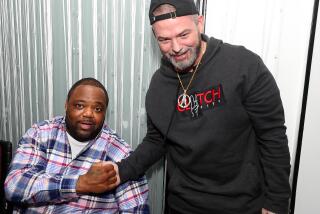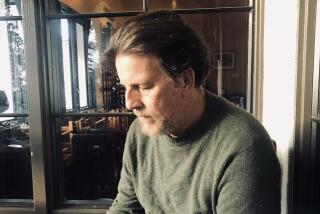Obituaries - April 18, 1999
- Share via
* Albert ‘Poppy’ Popwell; Character Actor
Albert “Poppy” Popwell, 72, a veteran character actor who became part of cinematic and pop history when Clint Eastwood as “Dirty Harry” trained his magnum on him and challenged him to “Go ahead, make my day.” In a career that spanned 60 years, Popwell appeared on stage, screen and television. He was in four of the “Dirty Harry” films, with his largest role in that series being Det. Horace King in “Sudden Impact.” Other film credits include “Blume in Love,” “Charley Varrick” and “Cleopatra Jones.” On television he made regular appearances on shows such as “The Name of the Game,” “Gomer Pyle,” “The Streets of San Francisco,” “Ironside” and “McCloud.” Popwell, a native of New York City, grew up during the Harlem Renaissance and danced in several Broadway shows during his teenage years. He was only 12 when he landed his first notable role, in “The Pirates,” starring Alan Lunt and Lynn Fontanne. His last Broadway show was “Golden Boy,” starring Sammy Davis Jr. A longtime member of the National Assn. for the Advancement of Colored People, Popwell was particularly active in the organization’s acting program for children and teens. On April 9, at Cedars-Sinai Medical Center of complications from open-heart surgery.
For the record:
12:00 a.m. April 21, 1999 For the Record
Los Angeles Times Tuesday April 20, 1999 Home Edition Part A Page 24 Metro Desk 1 inches; 19 words Type of Material: Correction
Popwell obituary--An obituary in Sunday’s Times on Albert Popwell misstated the name of the star of “The Pirates.” It was Alfred Lunt.
For the Record
Los Angeles Times Wednesday April 21, 1999 Home Edition Part A Page 22 Metro Desk 2 inches; 67 words Type of Material: Correction
‘Dirty Harry’ quote--An obituary on Albert Popwell in Sunday’s Times contained an incorrect quotation from the movie “Dirty Harry.” In the movie, Clint Eastwood looked down at Popwell, playing a hoodlum lying wounded in the street who is thinking about reaching for a nearby shotgun, and said, “Being that this is a .44 magnum, the most powerful handgun in the world, and would blow your head clean off, you’ve got to ask yourself one question: ‘Do I feel lucky?’ Well, do ya, punk?”
* Mary Lutyens; Novelist, Biographer
Mary Lutyens, 90, a novelist, editor, magazine writer and biographer who was perhaps best known for her work on the Indian spiritual philosopher Krishnamurti. Lutyens (pronounced LUTCH-ens), the daughter of well-known British architect Sir Edwin Lutyens, wrote 13 novels and excelled as an editor, but she was particularly interested in Krishnamurti, whom she knew from her childhood. Lutyen’s mother, Lady Emily Lutyens, was a member of the Theosophical Society, which based its teaching on Hindu ideas and philosophy. The society brought Krishnamurti and his brother from India to England to live, and they grew up under Lady Emily’s wing. She wrote several authoritative books on Krishnamurti, including “Krishnamurti: The Open Door” and “The Life and Death of Krishnamurti.” Her autobiography, “To Be Young,” was published in 1959. She also wrote romance novels under the pseudonym Esther Wyndham. On April 9 in London.
* Skip Spence; Member of Jefferson Airplane
Skip Spence, 52, an original member of the ‘60s San Francisco rock band Jefferson Airplane and a founder of Moby Grape. Born in Ontario, Canada, Spence started out as a drummer with the Airplane but a year later left to start Moby Grape and reverted to playing his original instrument, the guitar. He quickly developed a national following as a skilled and inventive songwriter. Moby Grape arrived on the rock scene with such enormous talent and promise that Columbia Records took the unprecedented step in 1967 of releasing five singles simultaneously to draw attention to the group’s debut album, a spectacularly inviting mix of rock, folk, blues, jazz and country elements. Instead of making Moby Grape a hit, the move struck the rock world as hype and the album sputtered commercially. All sorts of personal problems also contributed to the band’s failure to live up to its potential. Spence released a solo album, “Oar,” in 1968, but his life took a downward plunge when drugs and mental problems forced him out of Moby Grape in 1969. He spent a long period battling drugs, alcohol, schizophrenia and homelessness and, according to the San Francisco Chronicle, was a conservatee of Santa Clara County because of his assorted problems. A CD tribute to Spence, called “More Oar,” featuring Beck, Robert Plant, Tom Waits and members of R.E.M., is scheduled for release later this month, the Chronicle said. On Friday in Santa Cruz, two days short of his 53rd birthday, of lung cancer.


